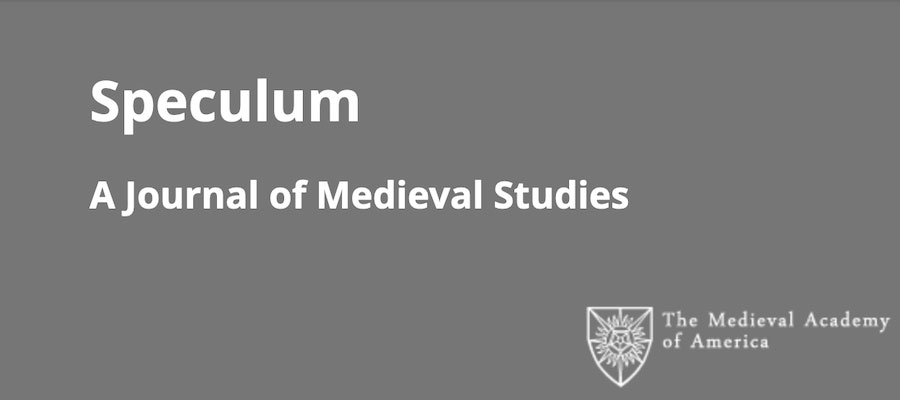Medieval Academy of America Centennial Special Issue, Speculum: A Journal of Medieval Studies
Founded in 1925, the Medieval Academy of America has served as a gathering space for scholars of the Middle Ages to forge new directions and collaborations across disciplines and subfields. In recent decades, the purview of the medieval has expanded to take on a global perspective, broadening the remit of our organization, and urging medievalists to rethink our place–in territorial and temporal terms–in the academy. The contributions of feminism, queer theory, trans studies, critical race theory, and indigenous studies have further redefined how we approach the medieval world and its peoples. Our own positionality–in systems of gender and race identity and as scholars working in North America, a continent excluded from the “medieval” by traditional historiography–inflects our scholarship in crucial ways. These observations lead us to ask, what is the role of our institutions–departments and disciplines, professional and social organizations, the guilds of the twentieth and twenty-first centuries–in the practices of knowledge making?
To mark the Medieval Academy of America’s centennial in 2025, Speculum invites articles for a special issue that reflect on the history of Medieval Studies in North America and its institutions. In this dedicated issue, we wish to address how schools, universities, libraries, archival repositories, professional societies, amateur organizations, and other para-academic and non-academic groups have organized and constructed the limits and articulations of our knowledge. How has Medieval Studies been shaped by its institutions? How have para-academic groups subverted and modeled new ways of maneuvering around conventional spaces? How has an evolving sense of community and belonging formulated and challenged many of the methods, theories, and interventions that have redefined our understanding of the Middle Ages? In the era of social media and social distancing, how have our online platforms provided added modes of collaboration, critique, and activism that have dared to imagine new horizons for the undertaking of our work and for the audiences that our research can reach?
The editors encourage a variety of approaches, including conventional studies on medieval materials that reflect on the state of the field and historiographic essays that consider the development of methodologies, intellectual communities, or critical figures in our disciplines. All contributions, however, should be written as timely interventions in and provocations to Medieval Studies. The editors are happy to consider proposals that break with some of the more established modes of academic writing. We encourage collaboration and will be happy to consider co- or multi-authored articles, and shorter interventions in addition to long-form articles. The editors are particularly interested in works that think critically and expansively about the terms medieval, academy, and America.
Editors
Karla Mallette, University of Michigan
Roland Betancourt, University of California, Irvine
